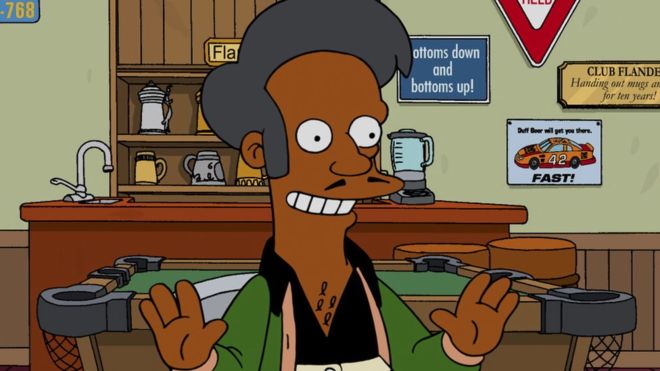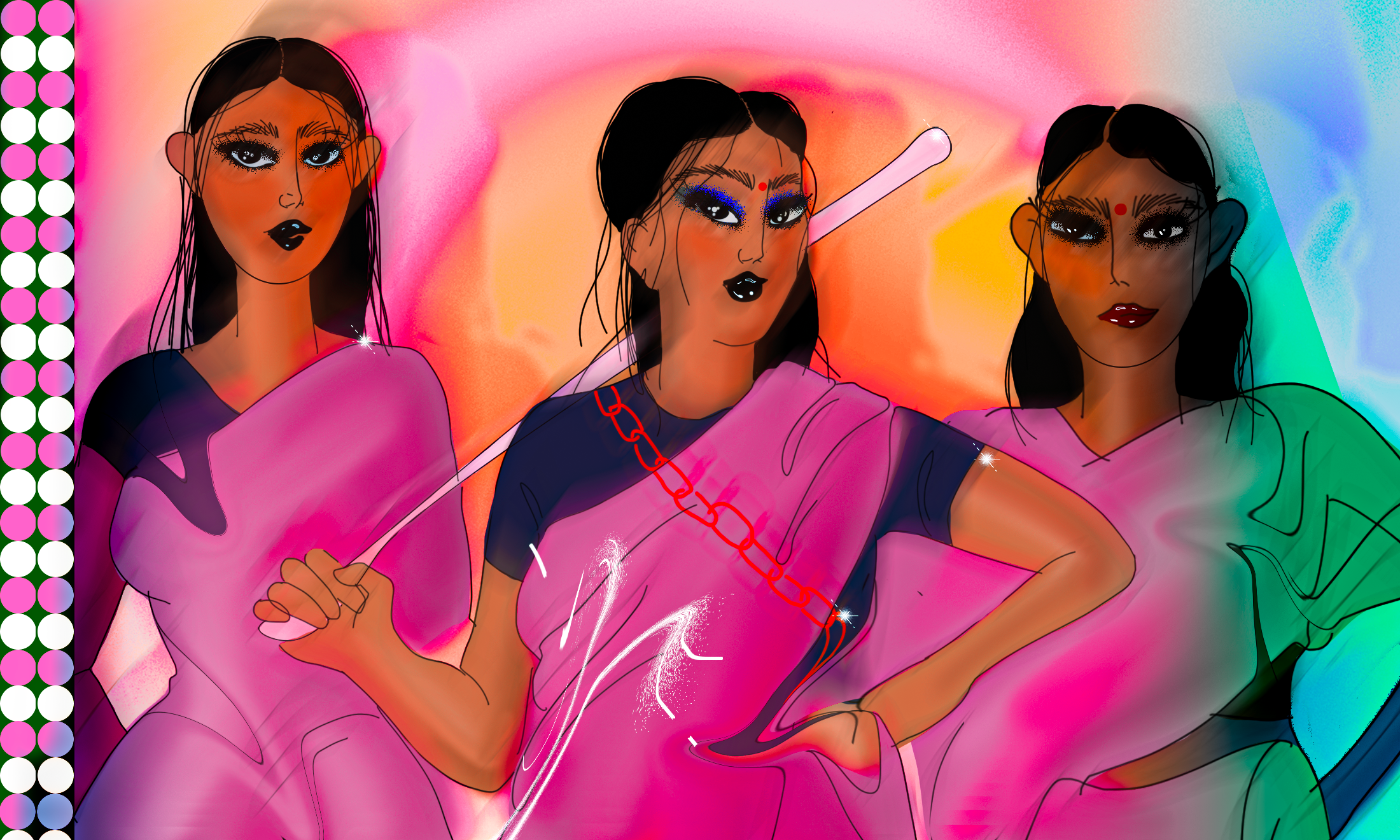
Image credit: Twentieth Century Fox
So is it finally goodbye Apu? After 29 years, reports suggest that Indian store clerk Apu Nahasapeemapetilon will be quietly dropped by The Simpsons after strong criticism about the portrayal.
But how did we get to this point? How did a show cited more than once as the greatest of all time find itself in this mess? And how did a series that has railed against the excesses of the powerful, that made Rupert Murdoch call himself a “tyrant”, that viciously mocked the Iraq war, fall on the wrong side of a race debate?
The controversy surrounding the animated character erupted last year when comedian Hari Kondabolu made the documentary “The Problem with Apu”. Kondabolu revealed how such stereotypical representation on a popular show affected South Asian Americans. The effects were wide, with interviewees describing how the character was used as fodder for racist bullying, to Asian actors being asked to perform the Apu-esque “patank” a head wobbling stereotypical accent memorably described as performing like a “monkey”. However, the most damning criticism was when Kondabolu linked the character to the history of minstrelsy due to Apu being voiced by white actor Hank Azaria. To lump a show so widely loved and revered with the likes of the minstrels, was a bold move indeed.
A closer look at the character’s inception demonstrates the lack of understanding and nuance which has given rise to the current controversy. The name “Apu” was taken from a Satyajit Ray film, but his long winded surname “Nahasapeemapetilon” is completely made up. It is nonsensical gibberish which was reportedly used to echo how long and convoluted Indian names sound to Western ears. In a 2007 interview which is positively toe curling to watch in the light of the recent controversy, Hank Azaria recalls how he first came up with Apu’s voice and admitted he was asked to do an Indian accent, with producers asking “how offensive can you make it?”
The interview is startling – it reveals how tone deaf Azaria was to the effects of such a racialised character. The segment ends with the audience applauding and cheering as Azaria recreates his favourite Apu moment, a rendition of “Sgt. Pepper’s Lonely Hearts Band” delivered in an exaggerated, mocking Indian accent.
In keeping with these questionable origins, some of the jokes at Apu’s expense were hideously obtuse. There were jokes about Indians being pungent, jokes about them reproducing wildly, jokes where characters masqueraded as Hindu Gods and stated “I’ll suck your blood”. Apu’s actions also fell into hackneyed stereotype territory. He had an arranged marriage to a stranger, was an illegal immigrant and was father to eight children. Both his wife Manjula and his mother were also voiced by white performers, one of whom admitted she voiced the character not by listening to Indian women but by imitating Azaria.
Given this, it is actually not surprising that the show has been called out for its depiction of Apu. With American South Asians finding a political voice and making an impact culturally in the US, it was only a matter of time before someone pointed out the obvious problems with the character.
“Azaria was asked to do an Indian accent, with producers asking ‘how offensive can you make it?'”
But the Apu controversy has seemed to have taken the producers by surprise. After Kondabolu’s documentary, their response was an episode in which Lisa, alluding to the issue, states “something that started out decades ago and was applauded and inoffensive is now politically incorrect”. This response was blasted as “inadequate” on social media, and jars with the aforementioned interview that revealed the producers were fully aware of the offence Apu’s characterisation would cause.
It remains to be seen whether Apu will genuinely be phased out. Producer Al Jean has denied the claims. And The Simpsons have never taken criticism lying down. When George H. W. Bush declared that he wanted American families to be “a lot more like the Waltons and a lot less like the Simpsons”, producers responded by an episode where Homer beats up the ex-President. When the Brazilian tourism secretary objected to the depiction of the country as rat infested and lawless, he was derided as a monkey in an episode. It is not clear whether producers will respond by getting rid of Apu or double down and put him at the centre of more episodes. The Simpsons has shown it can be robust in its responses to criticism, so the latter cannot be ruled out.
The true irony of the current state of things is that in terms of Asian representation on television, the country that gave us thick-accented, head-wobbling, white-actor-voiced Apu has also been the country that has given us The Mindy Project, Quantico, In the Night of and The Patriot Act. For all the damage that the depiction of Apu may have done, a new generation of South Asian performers are finding their voice, and no animated character can halt that.









